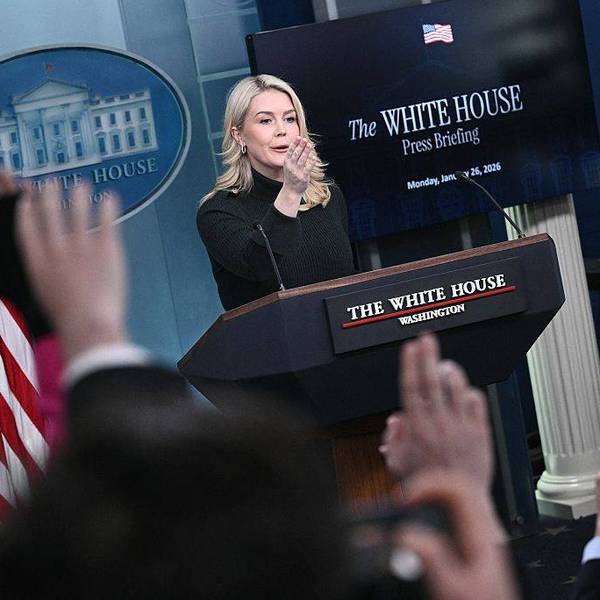Our chaotic political moment seems to have cast doubt on the trustworthiness of almost any information emanating from anywhere. As a result, the fact-checking trend in journalism -- an externalized form of the procedures journalists apply to their own work all the time -- has flourished in the past couple of years.
Anyone who learned to distinguish fact from opinion in elementary school would have good reason to assume that the two can be as neatly broken up in the realm of politics, with the factual information subjected to universal standards of historical and mathematical rigor, and then labeled true or false.
In politics, information is always marshaled to the cause of some course of action or thought -- and there, the line between simple facts and moral claims can blur. And these are not normal times.
But fact-checks in politics, even in normal times, are not as uncomplicated as they might initially seem. In politics, information is always marshaled to the cause of some course of action or thought -- and there, the line between simple facts and moral claims can blur. And these are not normal times.
Consider a pair of case studies. In the hours surrounding President Trump's bizarre address Tuesday, news organizations began pumping out fact-checks relating to the shutdown, the border wall and more. Among the first was the Associated Press, which tweeted out: "AP FACT CHECK: Democrats put the blame for the shutdown on Trump. But it takes two to tango. Trump's demand for $5.7 billion for his border wall is one reason for the budget impasse. The Democrats refusal to approve the money is another." Liberals were not pleased, and the AP ended up walking the tweet back -- somewhat.
Later, the New York Times put together a slew of fact-checks related to Trump's speech and the Democrats' response. The Times found Senate Minority Leader Charles E. Schumer's claim that "no president should pound the table and demand he gets his way or else the government shuts down, hurting millions of Americans who are treated as leverage," wanting, because "millions of Americans are not being directly harmed" -- seeing as only 800,000 federal workers are currently furloughed or working without pay.
The trouble with the AP's tweet was its unwitting mixture of factual and moral claims: It's accurate to say that Democrats blame Trump for the shutdown and that the shutdown could not have occurred if the Democrats had simply agreed with Trump's budget plan. But the tweet is really about how to assign blame to either Trump or the Democrats, and it argues -- not simply finds, as the "fact-check" label would indicate, but argues -- that blame is due on both sides. The assignment of blame is a moral question, not a strictly factual one. Assignment of causes is closer to the factual core of the exercise, but blame has to do with fault and harm, which are evaluated on moral lines. And so the AP found itself in deeper waters than fact-checking can easily navigate.
Meanwhile, the Times made a similar mistake. Schumer's initial comment did not state that his "millions" estimation referred only to workers directly affected by the shutdown. Instead, the Times made the decision that direct, individual harm was the only sensible way to quantify the impact of the shutdown, and it declared Schumer's remark in need of greater context on those grounds. But again: The notion that direct, individual harm is the most notable or serious form of harm caused by wide-reaching government policy is a moral distinction between causes and kinds of harm. A more holistic view might hold, for instance, that when workers are furloughed or unpaid, that's a direct harm to them -- and a direct harm to their families, as well as the people who rely on their work and services.
Fact-checking itself also requires a certain limitation of scope that, as Eric Levitz recently argued in New York magazine, limits the context in which a claim can be evaluated and can thus perpetuate bias toward more mainstream, establishment politics. News organizations with fact-checking teams are always going to have to choose what facts to check and what facts to ignore or accept, and that process of sorting out the checkable from the passable is not itself strictly neutral: It requires prioritization, value assignments and judgment calls. Even the decision to only check facts that, if misstated, affect the greatest number of people is a moral decision -- a utilitarian one, to be precise.
None of which is to say that fact-checking ought not be done, or that it's never useful or even imperative to correct public lies. It's only to point out that politics will never be a safe space where correcting falsehoods is a simple or straightforward exercise, much less one that is free of moral judgments.
There is perhaps a widespread longing for politics that are decided on the grounds of simple truths, a world in which reasonable people all come to the same rational decisions when finally presented with the real facts. But politics has always been and will always be a battlefield for moral reasoning that requires more than spot-checking of facts.
Winning there will always come down to arguments.




